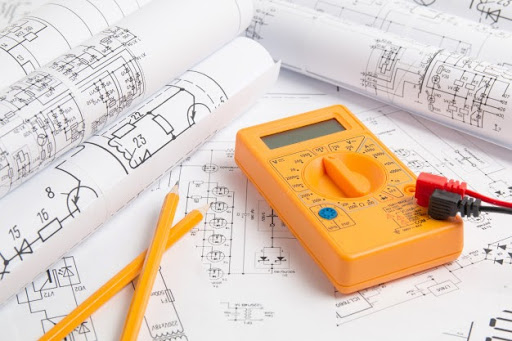
An electrician is a trained professional who is responsible for the wiring of buildings, transmission lines, and stationary machines and equipment. They can be involved in building new structures or maintaining existing electrical infrastructure. This article contains information regarding the salary ranges and job outlook for electricians. If you are passionate about working with electricity, this career might be for you. An electrician can be found working in hospitals, universities and manufacturing plants, as well as on residential and commercial construction projects.
Job outlook for electricians
An electrician can be described as a professional who is skilled in wiring buildings, transmission lines, stationary machinery, and other types. An electrician can be found working in the construction, maintenance, and installation of electrical infrastructure. These career opportunities are great. The average salary for electricians is well above the average. The field is growing quickly and offers many different job types. You will need to have a high-school diploma for this job.

Although demand isn't as great as you might think, the industry is on the rise and the job outlook is very positive. The U.S. Bureau of Labor Statistics projects that there will be a 9.1% increase in electrician jobs between 2012-2022, which is higher than the average growth rate for all occupations. What are the benefits of becoming an electrician? Here are just some of the advantages of this profession. There are still electricians needed in this field.
Education required to become an electrician
To become an electrician, you need to have a high school diploma, or equivalency. You may also need to take classes in mathematics and science. Most electrician schools emphasize a combination of these subjects. Postsecondary education is for high school graduates who want to study math and science. It is also possible to take courses in electrical tech or shop. High school graduates may also find these courses useful during their training. However, if you don't already have a high school diploma or GED, consider taking an electrician training program instead.
To become an electrician, you must hold a bachelor's Degree or the equivalent in certain states. In some states, you'll need to pass an exam to become a licensed electrician. After you have obtained your license you will need continuing education. This usually includes four hours training every eighteen. In addition, state and local government agencies require that electricians maintain continuing education. Classes in continuing education cover current technologies and the codes that apply to electrical wiring. They can also give valuable information about the job.
The salary range for electricians
Salaries for electricians are subject to change depending on where you live and what state you're in. For example, an electrician in Alaska could earn $10,000 more than a Maine counterpart. These salaries are related to different areas' economies. For instance, Iowa has a large agriculture industry, meaning electricians in this state can expect to make a good living. Texas and other oil-producing areas can offer electricians high salaries. Different areas also have different living costs, which is why electricians are in high demand.

There are several apprenticeship programs available, and it is possible to train to become an electrician. You will need a high school diploma and at least some electrical experience. Although you will work full-time at an electrical company, your hours could change if there is a major storm. However, apprentice electricians may have to work overtime. Apprentice electricians typically make more than the minimum wage. But, you'll need to cover your schooling. You will receive increases each year and training will take four years. Apprentices may also qualify for overtime hours and special bonuses.
FAQ
When do I have the obligation to pay for the service/contractor
The service you are receiving will dictate the payment schedule. You would normally pay the contractor when the job is done. A supplier might require you to test and receive the item before you pay.
Is there a way to prepare for negotiation before hand?
Yes!
There are many different ways you can prepare yourself to negotiate.
One way is to write out the terms and conditions of the agreement
What is the scope of my SCA?
The SCA will provide details about the scope of work needed. These include what time it will take and what materials, equipment, and special permits.
Statistics
- (v) Place or places of performance of the prime contract and first-tier subcontracts estimated at $10 million or more, if known. (acquisition.gov)
- (3) The contracting officer may provide for a contract price adjustment based solely on a percentage rate determined by the contracting officer using a published economic indicator incorporated into the solicitation and resulting contract. (acquisition.gov)
- (d) Contractor disputes related to compliance with its obligation shall be handled according to the rules, regulations, and relevant orders of the Secretary of Labor (see 41 CFR60-1.1). (acquisition.gov)
- Depending on the client's trustworthiness and financial stability, a deposit is usually 10 to 50% of the total contract amount. (lawdepot.com)
- Reasonable late fees go up to 25% per year on unpaid sums. (lawdepot.com)
External Links
How To
How do I begin to negotiate the terms of my first service agreement?
It can be daunting to negotiate the terms of a service agreement.
It doesn't have be difficult to negotiate the terms for a first contract.
It all depends on how well prepared you are.
Before you begin negotiations, you should ensure that you understand the terms and conditions of your first service agreement.
You should also know exactly what your plans are for each customer.
And you should know what the customer expects from you.
Once you have a clear understanding of your expectations, you can prepare for negotiations.
The more information you have, the better you will be prepared to meet the other side.